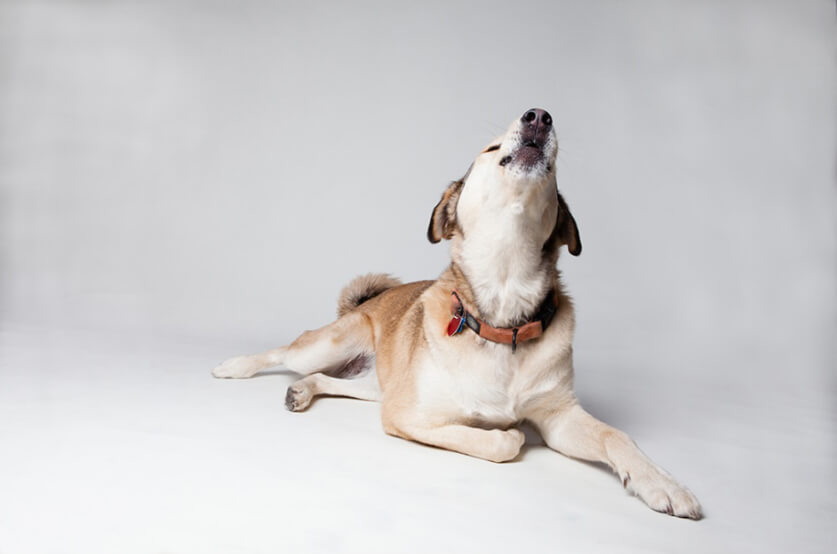5 Reasons Why Dogs Howl

Dogs are the domesticated descendants of the wolf, and as such they retain primal wolf characteristics. Howling is one of them. Take a listen to the primordial resonance of wolves howling here. Whether you live in a city apartment or a house in the country, chances are you’ve heard the unmistakable sound of a dog howling in the distance. Here, we take a look at five reasons why dogs howl.
1. Stress and Separation Anxiety
One of the reasons dogs howl is stress. When stressed, some dogs may behave unfavourably, such as chewing up the furniture. Others howl or whine when they’ve reached their stress threshold. Try to target their source of stress, and if it can’t be eliminated, enlist the help of your veterinarian or an animal behaviourist, who will assist you in employing a technique of desensitisation. Read What a Dog Wants to increase your dog’s happiness to reduce stress.
When lost, a wolf will howl to share their location with pack members and to ask for theirs, thereby reuniting them with the pack and ending their isolation. Dogs cooped up indoors for too long suffer from such isolation stress. It is akin to separation anxiety. Dogs may feel this separation from you, and from any other dogs they live with.
Slowly condition your dog to adjust to your absence. Leave them alone for short periods, as little as five minutes in severe cases. Slower stretch this time out to help them get used to periods of time in their own company. This is especially important for puppies, so they learn to live happily without constant company.
2. Pain
Interestingly, dogs who suffer from chronic pain rarely whine or howl. However, a dog suffering from acute pain, such as sharp pain due to injury, may howl in discomfort. If your dog suddenly starts howling with no obvious reason, visit your veterinarian to rule out an internal problem.
3. Territory
Wolves are territorial, and they defend their boundaries. This territorialism is another characteristic inherited from the wolf, as is their pack mentality. Your dog’s pack may be as small as just them and you, a party of two, or it may encompass a large extended family with lots of other dogs – whatever their household consists of. If a strange dog or person enters their territory, it may trigger a howl from your dog informing pack members of the stranger’s presence.
4. High-Pitched Noises
A high-pitched sound can trigger howling, such as an emergency vehicle siren, a fire alarm or musical instruments. It is thought that a dog may instinctively understand the high-pitched sound to be a distress signal, and so they howl to communicate and ascertain the location of the distressed pack member. Of course, some dogs are trained to respond to the high-pitched notes in music with howling. Which is just fun, isn’t it.
5. Excitement
When your dog achieves or feels excited they might like to show off and receive praise. This showing off may come in the form of a howl. This excitement is more common in hunting dogs, such as collies, labradors, and beagles. Some dogs are so excited when you get home that they will sound out a welcoming howl.
You may find, if you are inclined to try, that if you howl, your dog howls too. Let’s face it, it seems like a lot of fun, and sometimes your dog thinks so too. It can express pack pride; enjoyment of being part of the pack. And it can indicate that your dog is ready to join in the action, such as when you’re getting ready to go for a walk.
A dog’s howl can occur for many different reasons. Use these 5 Reasons Dogs Howl as a guide, but consider that your dog may just enjoy having a good old howl. Take note of what’s going on and your dog’s behaviour when they howl to gauge the best response. And when in doubt, see your veterinarian to rule out any unseen problem. Read What a Dog Wants for tips on keeping your dog happy.
